The project was between the Cathedrals Group, Leeds Trinity University and the Higher Education Academy and ran from July 2016 - February 2017. It sought to identify and showcase practice in Student Peer Assisted Learning and / or Mentoring Schemes which exist within The Cathedrals Group. This toolkit was one of the project outcomes, along with the Practice Directory, Case Study Compendium, Project Report and this project web page. It is intended to offer support to all colleagues who may wish to:
- Revise and / or enhance an existing scheme
- Design a new scheme.
Each section is intended either to be viewed in order or for you to select specific issues and themes that interest you.
Eight Key Issues
This toolkit was developed to support the development and enhancement of new and existing schemes and identified 8 key issues of concern with 27 themes and 88 sub themes. The toolkit is designed to support colleagues looking to develop a scheme from the beginning or to evaluate their own scheme to see how it could be improved/enhanced/updated.
- Strategic Intent
- Organisational Commitment
- Scope & Focus
- Design: Mentoring schemes
- Design: Academic PAL
- Ownership and Operation
- Outcomes and Impact
- Community of Practice
Strategic Intent
Having a clear link with Institutional Strategic Priorities is crucial. This helps to:
- enable clarity of purpose
- position the scheme as a priority
- facilitate visibility among senior managers and the executive team
- ensure all colleagues and students to appreciate its significance.
The three themes of Strategic Intent are also identified here.
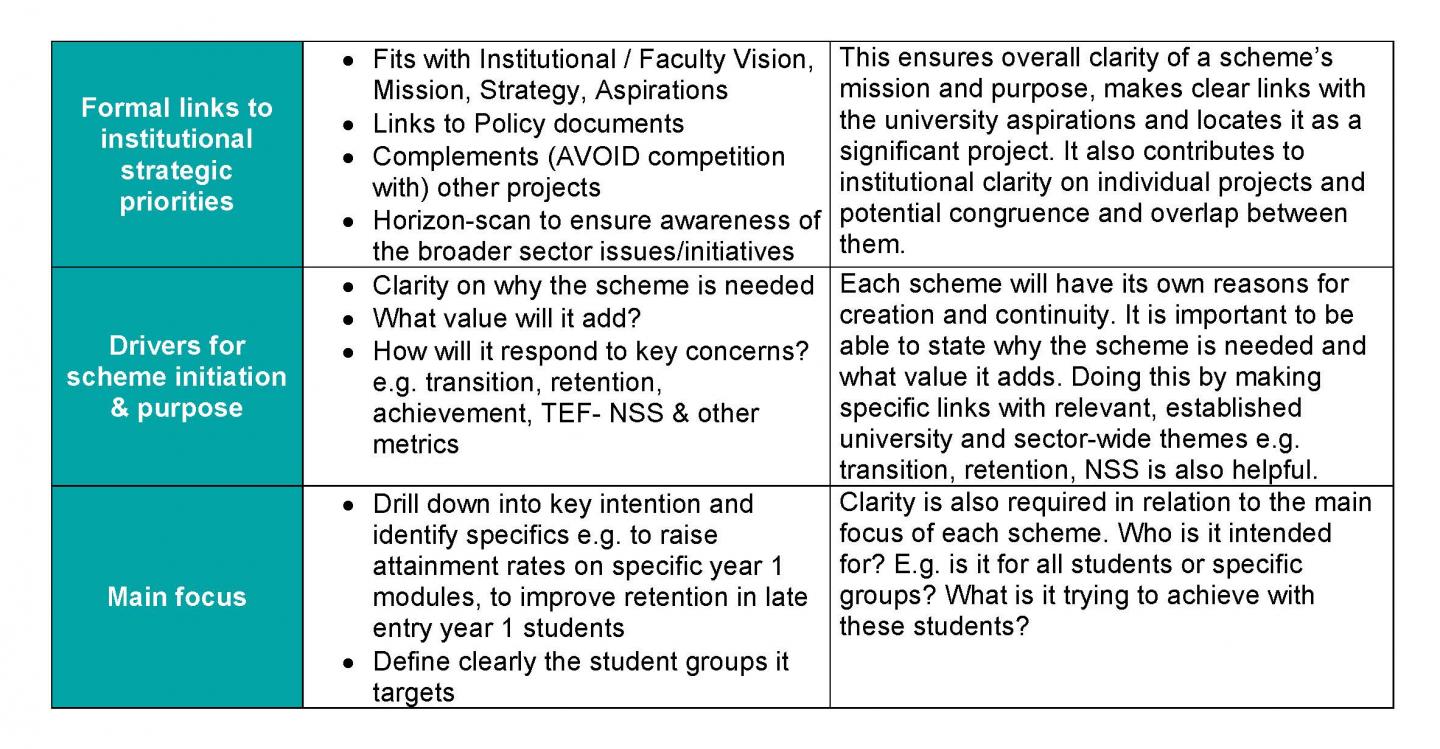
Organisational Commitment
Achieving organisational commitment is important, since this helps to ensure:
- the scheme receives recognition and SUPPORT from executive and managerial staff
- commands a stronger position when decisions need to be made regarding budget, resources including staffing
- plans can be made for continuation and, where relevant, growth of the scheme.
The three themes of Organisational Commitment are also identified here.
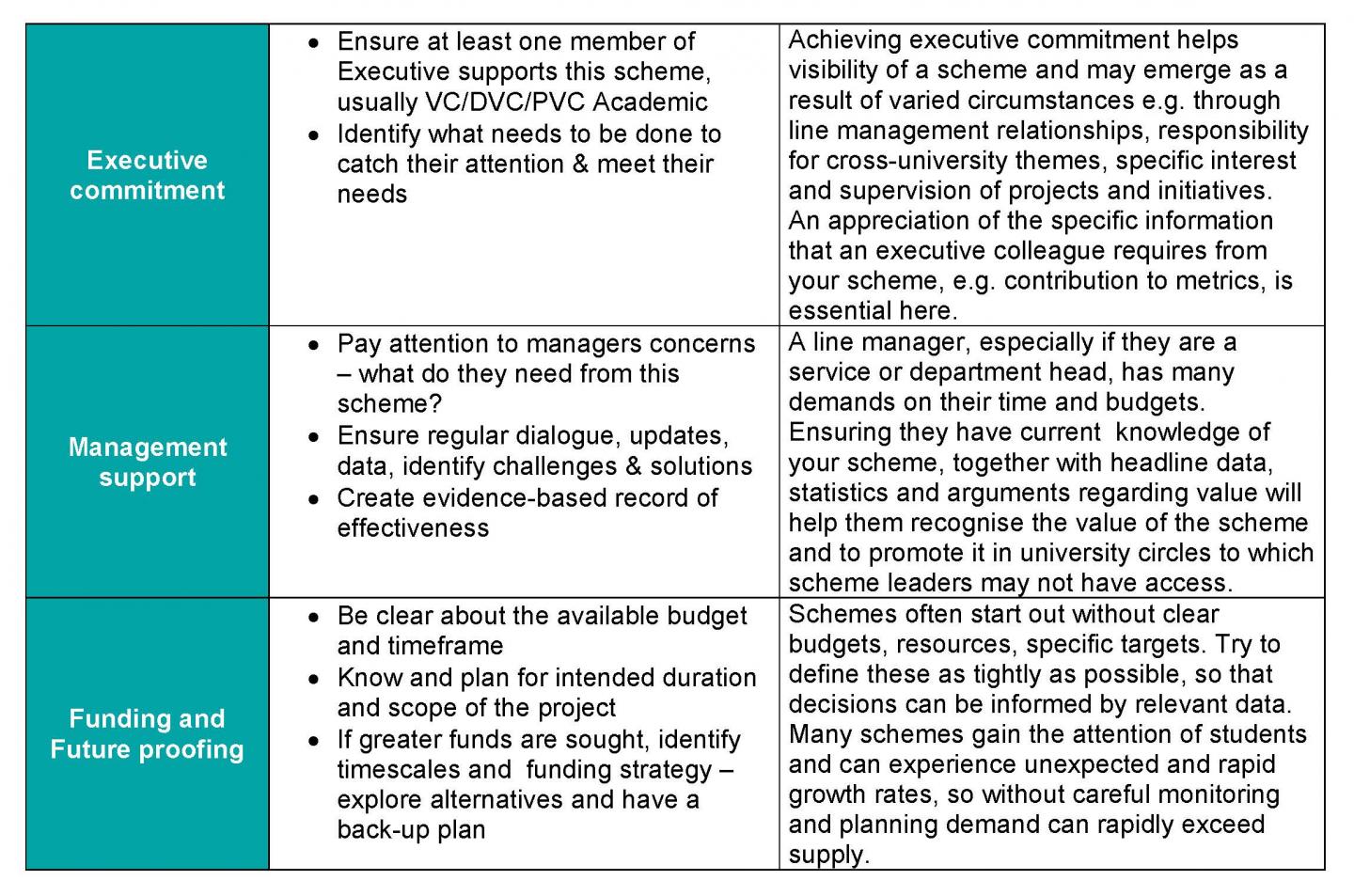
Scope and Focus
Clarity around the purpose of the project is supported and enacted by defining parameters around who the scheme is intended to help. This means being clear about the student participants who are to be the Mentors and the mentees. Clarity around scope and focus also enables activities to be carried out in partnership with relevant student groups, and may in turn also facilitate links with other institutional groups, projects, schemes and initiatives.
The three themes of Scope and Focus are also identified here.
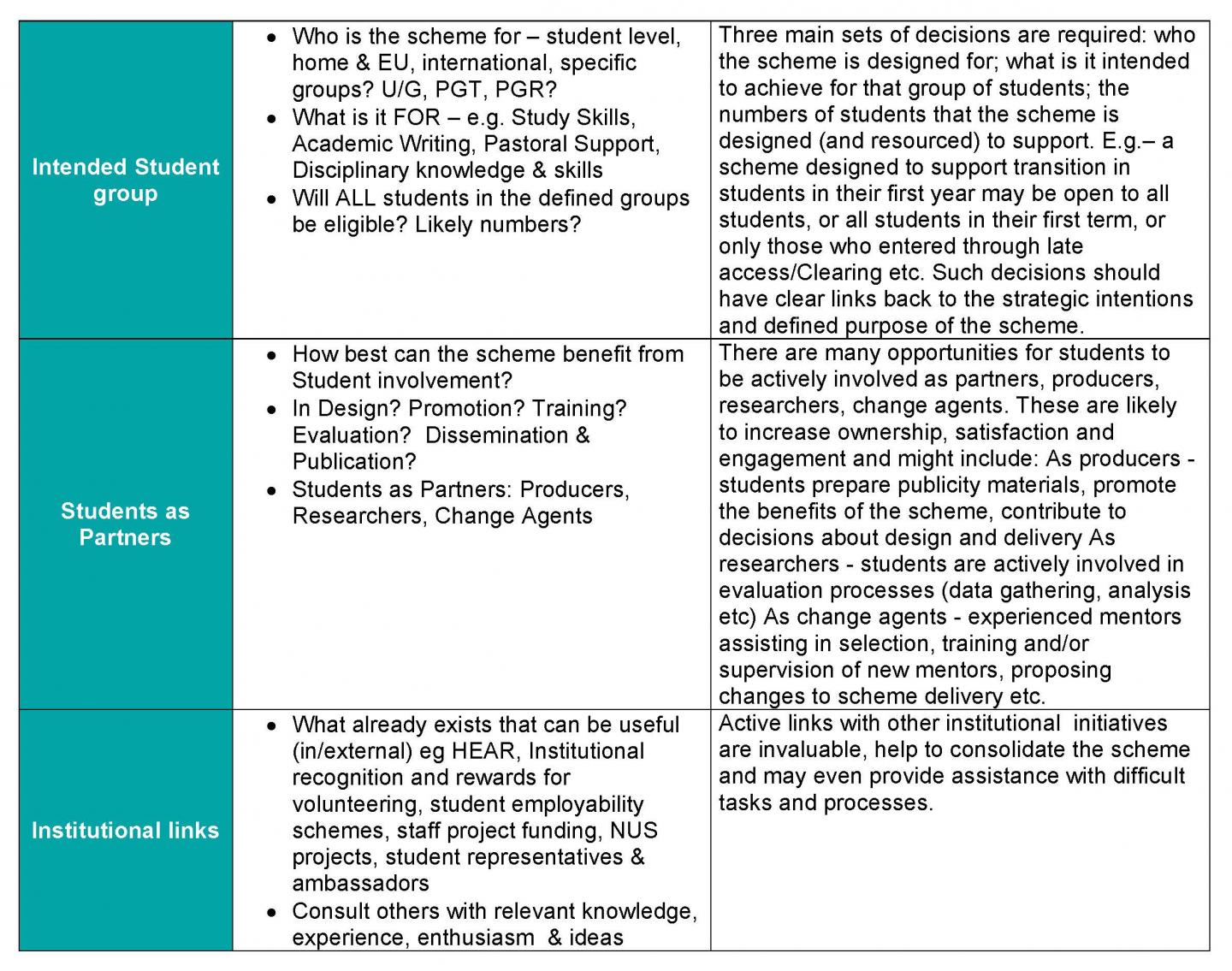
Mentoring schemes require considerable design and planning in preparation for the scheme operation. Most of this planning needs to be undertaken well in advance, ideally so that materials and processes - particularly those around promotion, recruitment and training for mentors - are available the year before they are needed.
The five themes of Design-Mentoring Schemes are also identified here.
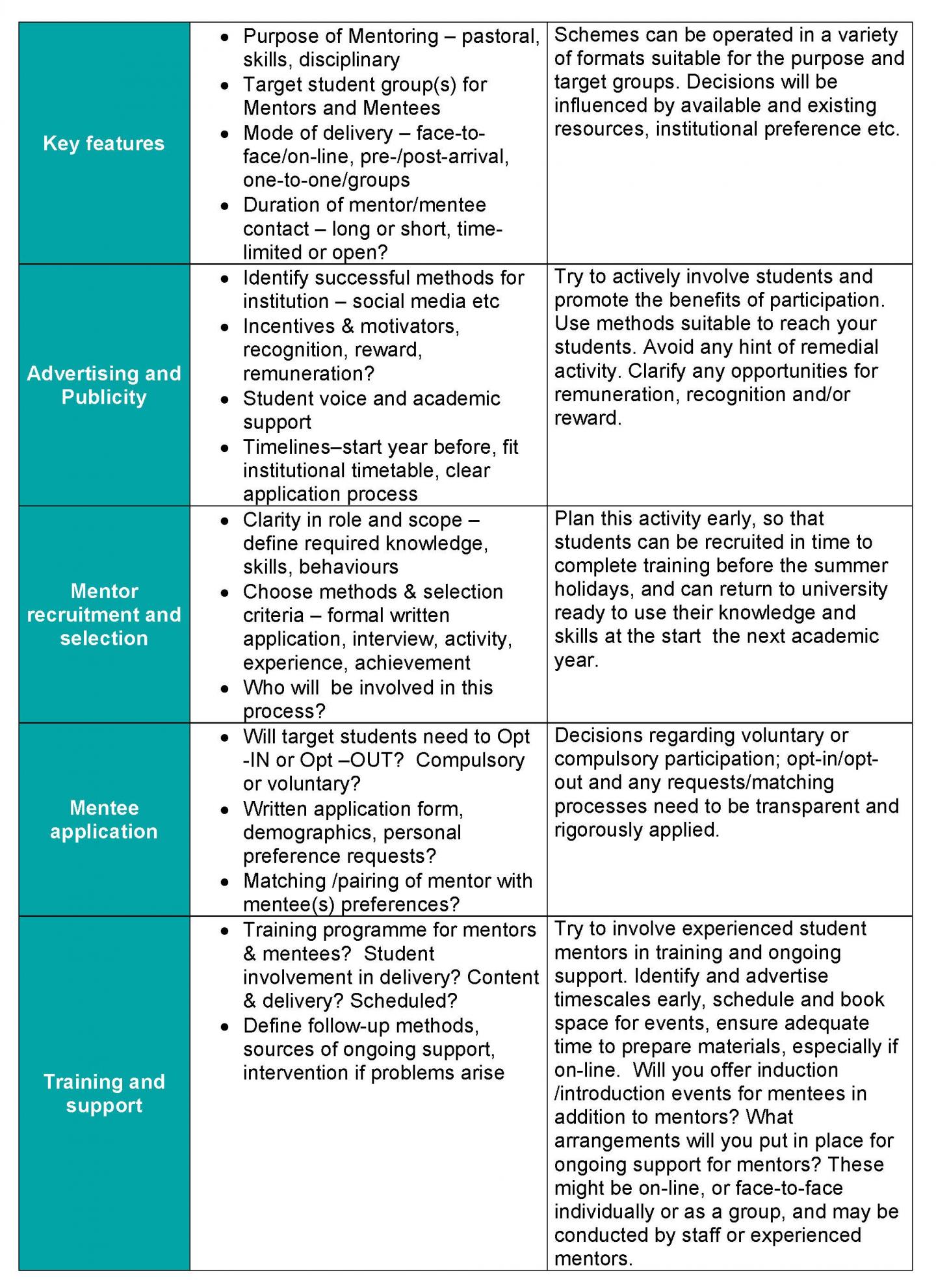
Design - Academic Peer Assisted Learning
Academic programmes utilise a very wide range of approaches which all fall under the ‘umbrella term’ of peer assisted learning. Some academic programmes use activities designed to support students learning together in pairs, or small groups while others may use a localised and disciplinary-specific version of mentoring schemes that may or may-not be in existence within the wider university. In all cases, decisions will still need to be taken that identify intention, purpose, student groups, whether participation is voluntary or compulsory, links with formative and/or summative assessment, timing and resources etc.
The four themes of Design–Academic Peer Assisted Learning are also identified here.
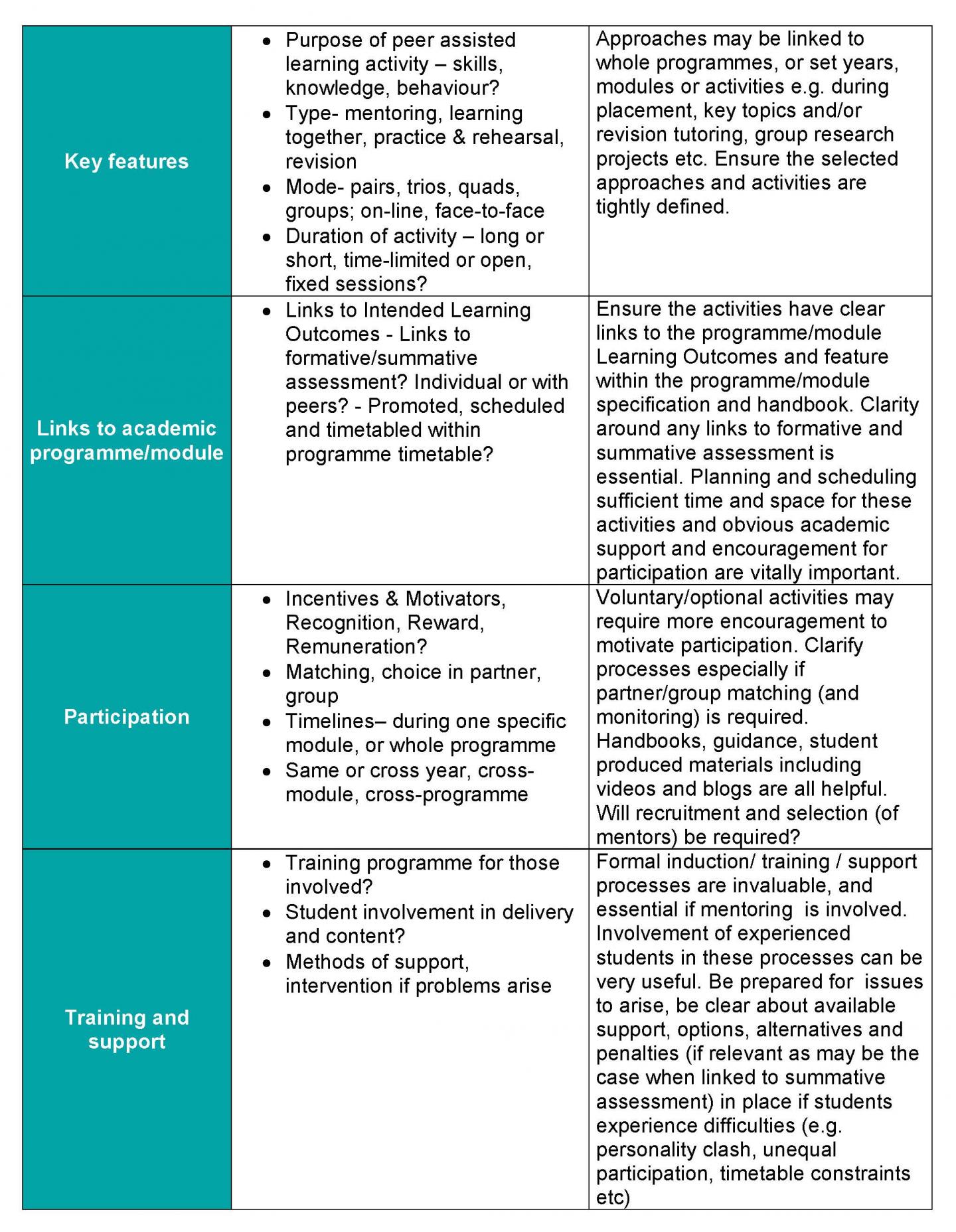
Ownership and Operation
Schemes are owned and operated in a variety of ways. Ideally, a scheme has a clear link to a particular team, department, service, academic programme or faculty. Clarity over lines of accountability, staffing (shared and/or dedicated posts, paid or voluntary), budget and available resources is similarly essential.
The three themes of Ownership and Operation are also identified here.
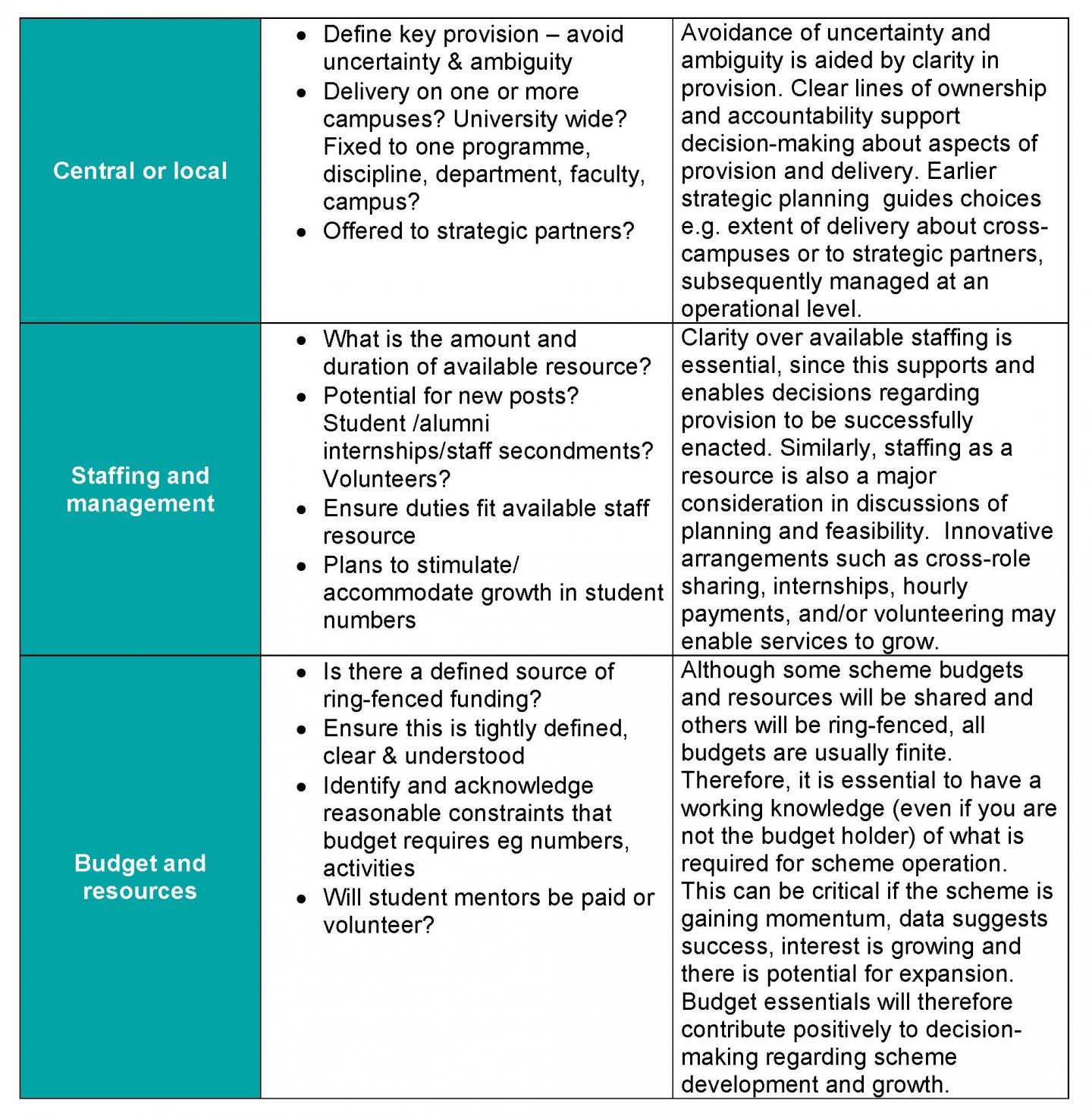
Outcomes and Impact
Evaluation of scheme success is vital since it enables effectiveness on a range of measures to be evidenced. These are likely to include identified Key Performance Indicators for the scheme and will usually include qualitative and quantitative data. Ideally evidence will be drawn from several sources including individual participant feedback and larger-scale cohort analysis linked to identified metrics.
Dissemination of findings through institutional and sector-wide opportunities for scholarship and research are also important aspects of the bigger picture here.
The three themes of Outcomes and Impact are also identified here.
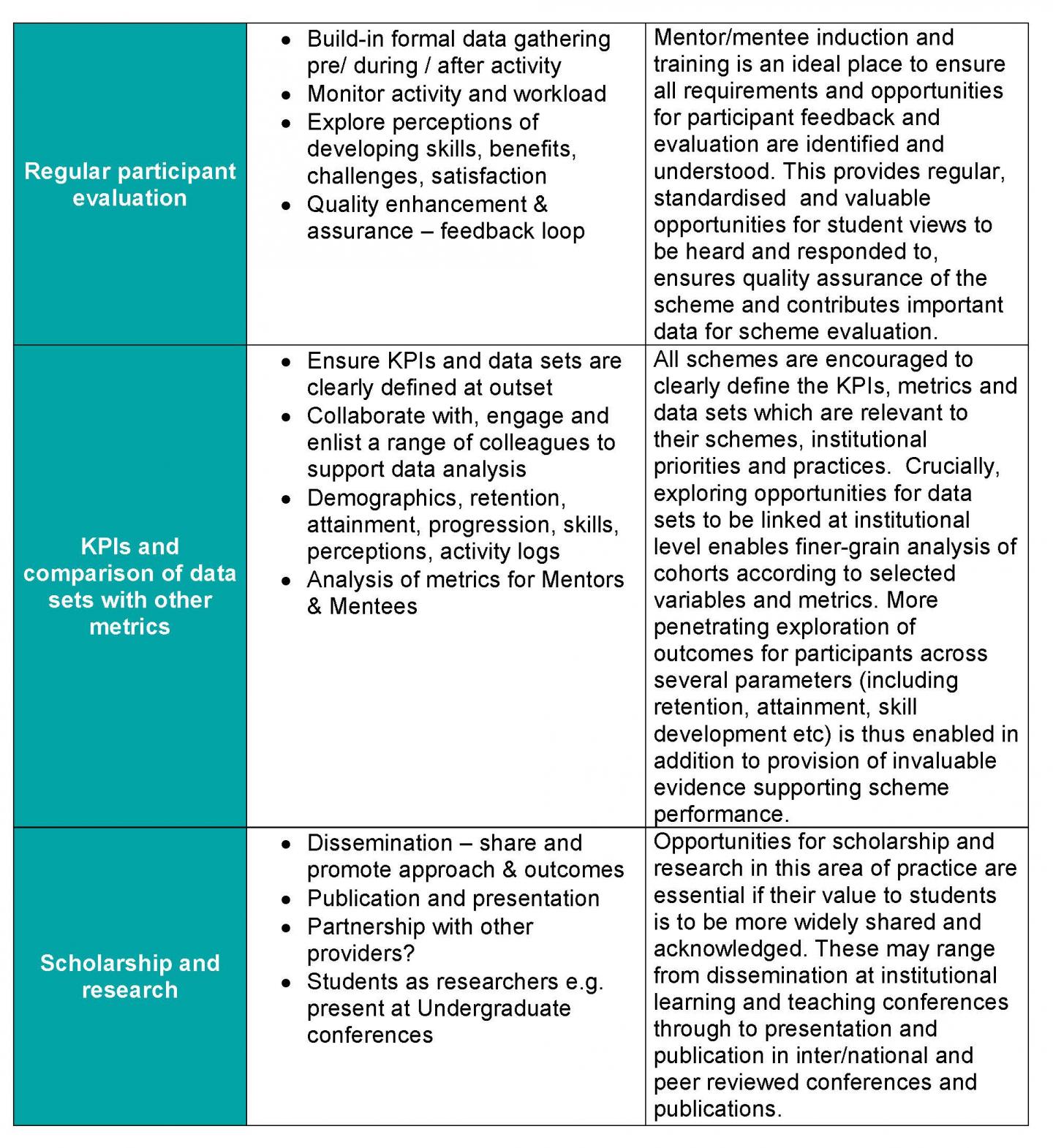
Community of Practice
Developing a Community of Practice in this area offers invaluable opportunities to explore issues and outcomes with others involved in similar activities. Co-operation, collaboration and co-creation are all enabled and assist in a range of issues such as problem-solving, design and dissemination. Communities may be linked to single issues e.g. student peer mentoring or may be more thematic, incorporating a range of issues such as those linked to the broad heading of Retention or Transition.
The three themes of Community of Practice are also identified here.
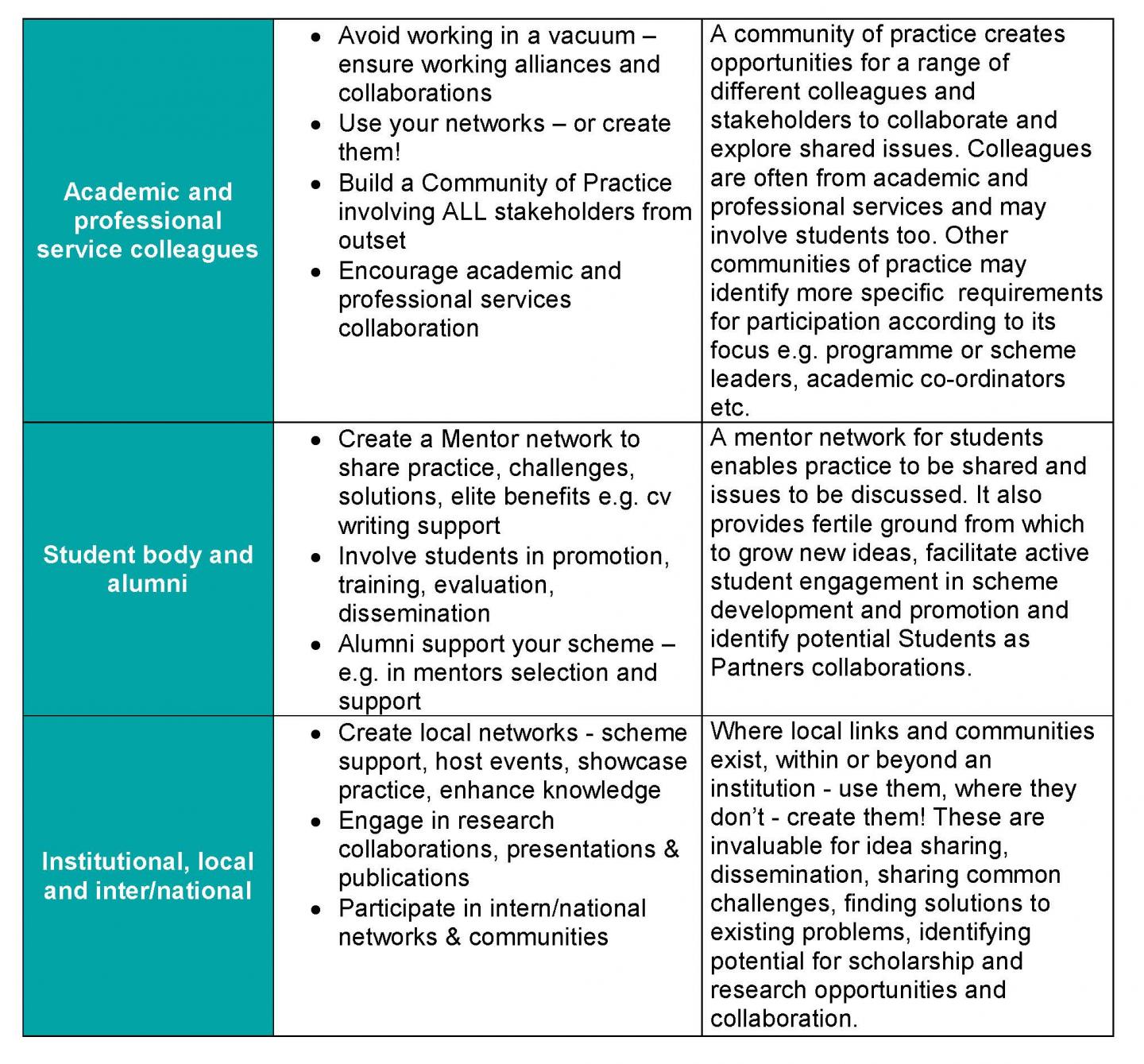
Top tips from Cathedrals Group Scheme Leaders
As part of the project, Scheme Leaders were invited to offer ideas and suggestions from their own experience that might help others who wish to establish or enhance a scheme.
- Create a scheme to meet identified needs
- Ensure clear links between structure, operation and outcomes
- Identify goals and outcomes for mentoring sessions
- Give mentors opportunities to promote their activities
- Give careful consideration to marketing and promotion: ‘proactive not remedial’
- Ensure sufficient planning ahead – especially for recruitment, selection and training before academic year starts
- Participation levels vary between disciplines and over time – effective publicity essential
- Remember pre-entry numbers can vary considerably from those expected
- Be versatile – consider short drop-in sessions alongside longer appointments
- Identify appropriate space for PAL/PM activity
- Promote scheme and build relations with academic staff
- Embedding schemes into academic programmes enhances student commitment and helps timetabling
- Recognition and reward are valued – payment not essential
- Manage student expectations – e.g. clarify if ‘matching’ to mentee preferences is available
- Academic programme – use mentoring /peer learning to support areas of common difficulty within curriculum and identify specific sessions